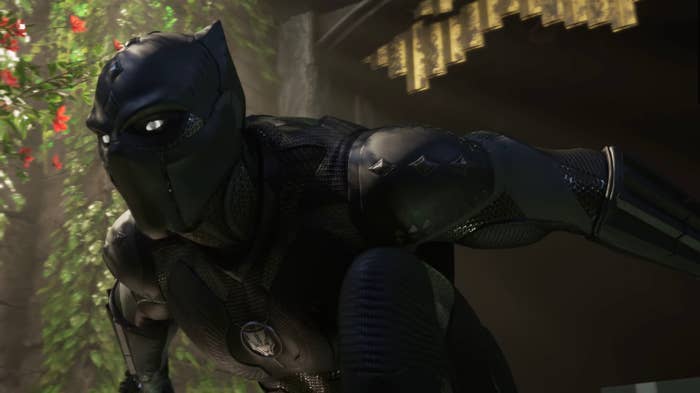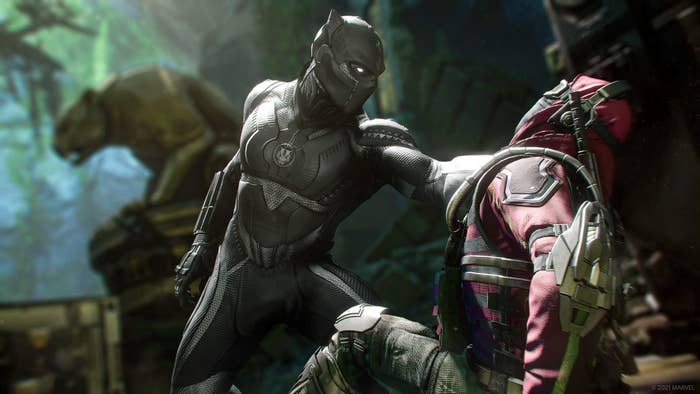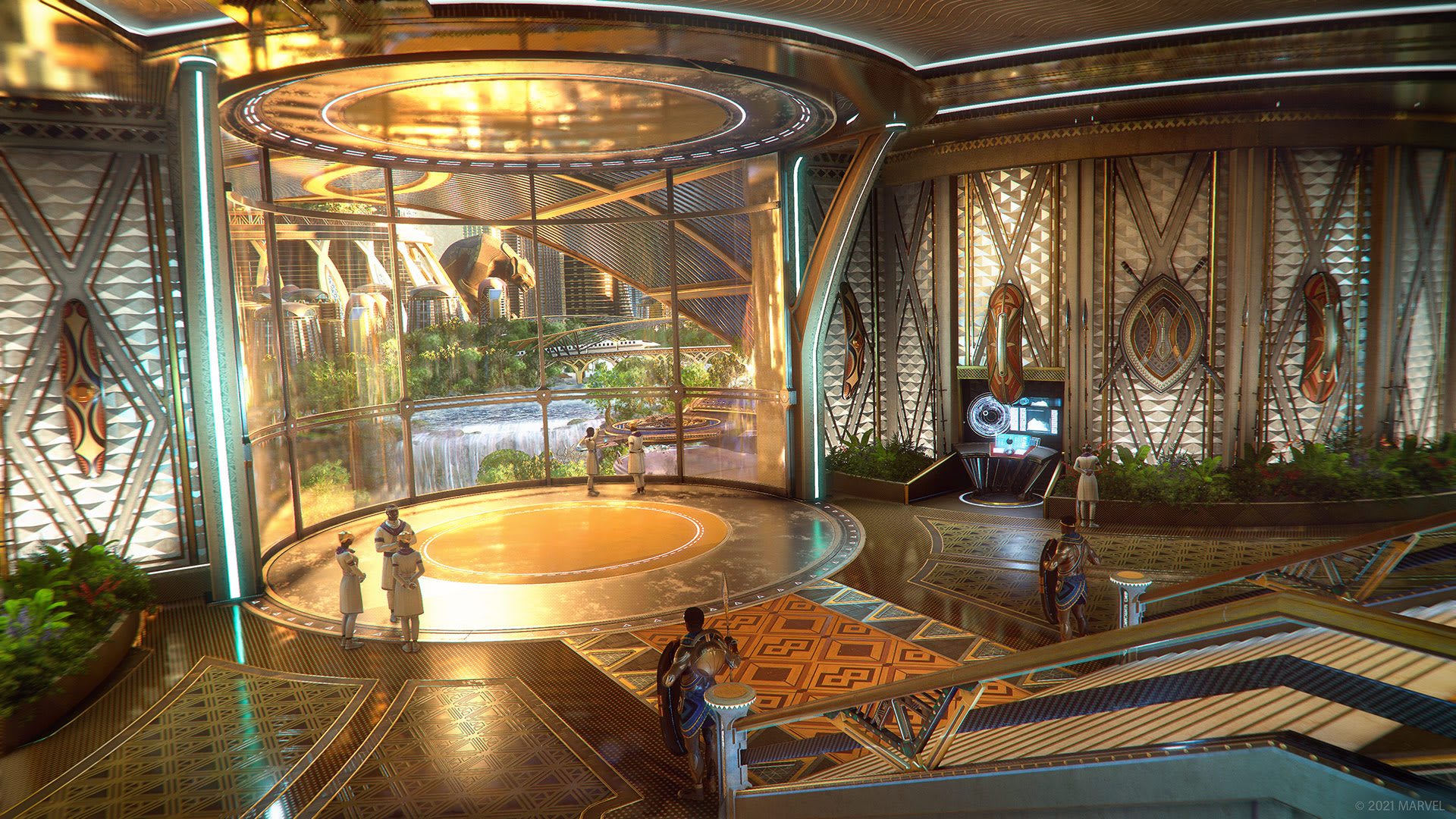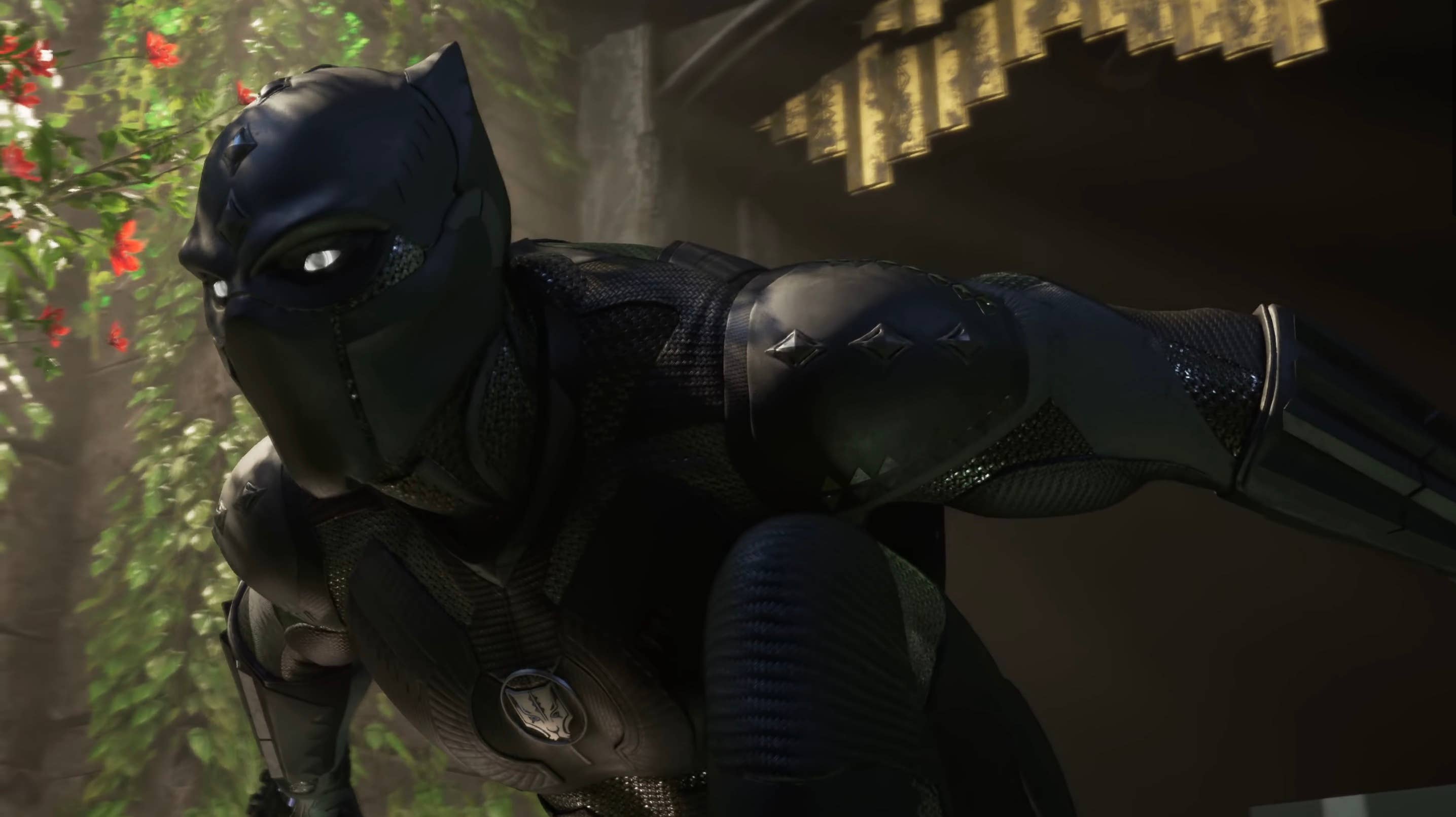
When veteran actor Christopher Judge was approached to be the voice of Black Panther in Marvel’s Avengers’ new DLC, War for Wakanda, his first impulse was to say no. Not because it was a video game; Judge has starred in several video game projects, most notably as Kratos in the latest God of War (2018) and as head mobster D-Mob in the cult classic fighting game Def Jam: Fight for NY. Rather, it was anticipatory fears of how the story might play out as a “white savior” narrative.
“It was first pitched to me as ‘The Avengers go to Wakanda,’” said Judge in a Zoom interview with Complex. “And I was like, ‘Hell no. I can’t be a part of the Avengers ‘saving’ Wakanda.’ But as I gathered further information, I realized that wasn’t going to happen.”
For 56-year-old Judge, the Black Panther comics exist as a sort of a family touchstone. When Marvel released the Black Panther movie to theaters in 2018, his mother wanted three generations—herself, her son, and his children—to watch it together. She bridged the generational gap, telling her grandchildren that their father had those comics while he was growing up in the ‘70s. And so, even after being reassured of the game’s intentions, he was still hesitant to sign on, because he knew how high the expectations were.
“[I had] reverence for the character [of T’Challa],” said Judge. “This [role] wasn’t something I could half-ass… but my mother didn’t really leave me a choice. So that was the final clincher.”

After that came the process of preparing for the role, and Judge found himself challenged in new, personal ways. He wanted to create his own take on T’Challa—an ambitious goal, since the late Chadwick Boseman put such an indelible mark on the character in 2018. He eventually did so, but only by making himself emotionally vulnerable.
“I discovered that I could never move beyond where I am as a performer—even as a man—without going into the uncomfortable,” said Judge. “As a man, once you achieve success, you become tighter, more closed in, because you want to hold onto it.
“I’ve been around since the ‘60s so all of that colors your experience,” continued Judge. “Different scenes cause different emotions and different pain, which may not occur for someone else. And if you’re open to that sort of discovery, it makes your performance unique.”
Uncovering this vulnerability demanded a supportive environment to nurture it. And one way Crystal Dynamics cultivated this environment was by drilling down on the story, ensuring that on the page, T’Challa was a fully realized character worthy of deep exploration. The studio reached out to Evan Narcisse, who wrote the “Rise of the Black Panther” comic arc in 2018. Narcisse was also a writer for Marvel’s Spider-Man: Miles Morales game in 2020.
“My mandate was to keep the story focused on Wakanda and not have it be about the Avengers; this is a Wakanda-first narrative,” Narcisse told Complex. “[My mandate] was also to remind the narrative team of the different elements of T’Challa as a character. He’s not just an acrobat in a catsuit who beats people up. He’s a scientist, he’s a strategist, he’s the living embodiment of his country’s history and culture.”
“[It’s important to] think of Wakanda as a fictional space that has held onto its culture for centuries and how that affects the national psyche of the average Wakandan,’” continued Narcisse. “There might be some morbid fascination about what happens beyond their borders, but Wakandans are self-sufficient, self-sustaining, and self-assured in a way that can be off-putting to people outside of that culture.”

This imagining of Wakanda—as an Afrofuturist haven untouched by colonialism—resonates with so many people of color. What could have been? And how far could we go, unfettered not only from outside forces, but also from ourselves and our perception of what we’re capable of?
“When you center Black people in the story—when you make them the priority—it gives you such a bigger storytelling horizon. You think about history and culture, and the way they’ve responded to a world that has not been built for them,” said Narcisse.
It’s important for Black voices to be heard at every step of the development process—both on-screen and off-screen—and be given the creative control to tell their stories. Judge, a fan of Narcisse’s comic and script work, may have been initially reluctant to come on board the Black Panther project. But had he known Narcisse was involved, Judge says the negotiations would have been much easier.
“[I now have the position] to work with who I want to work with,” said Judge. “And to work with brilliance—especially black brilliance, who the sci-fi fantasy community hasn’t always been kind to—is very exciting for me.”
The Marvel’s Avengers: War for Wakanda DLC is a massive, narrative-driven DLC expansion. It is out now, and free for anyone who owns the core game on Playstation, Xbox, Windows, or Stadia.

